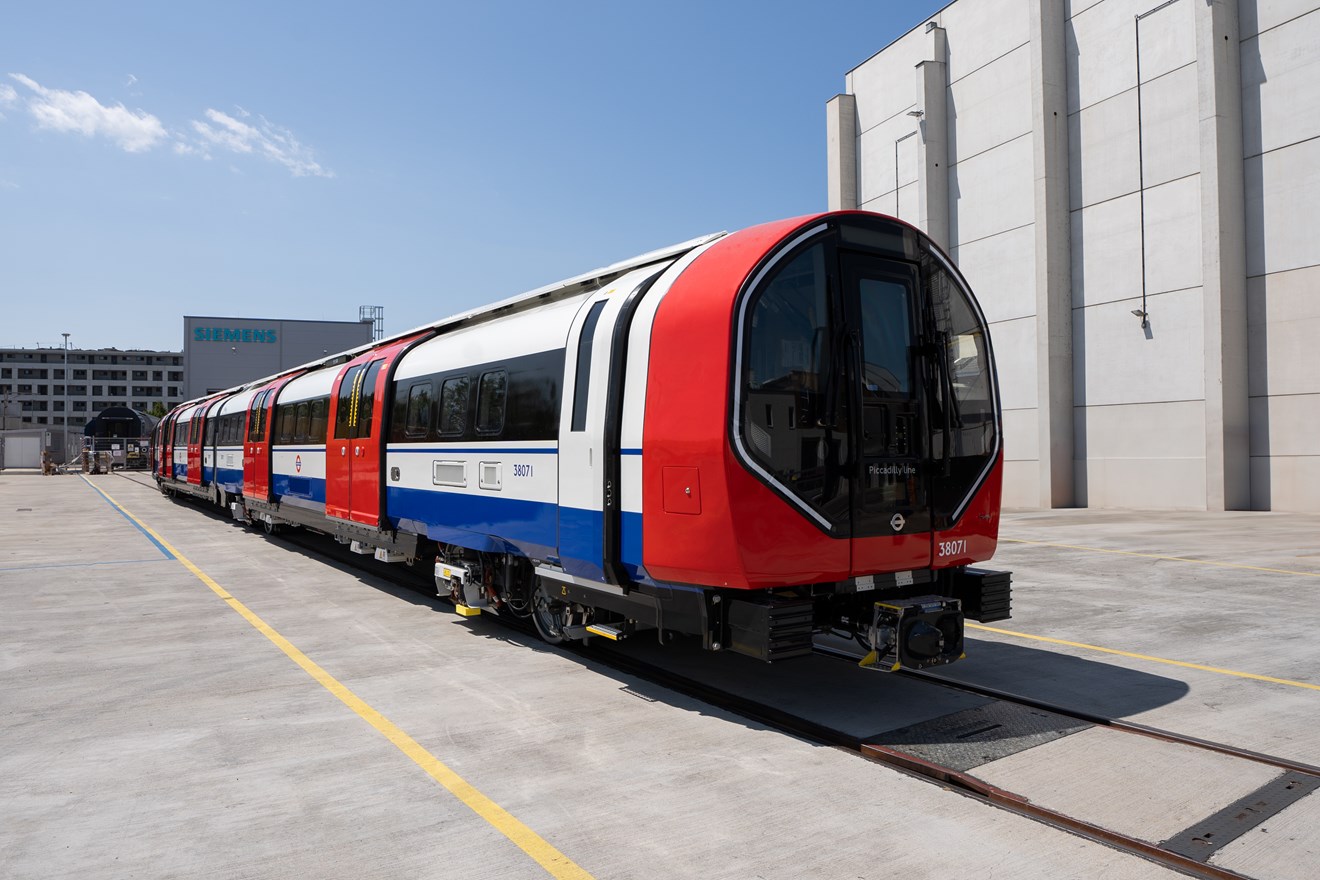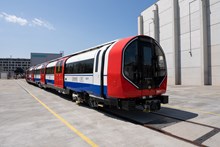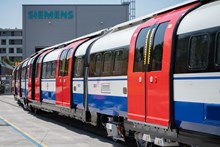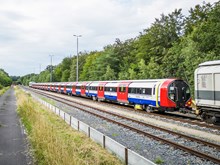The first of the 94-Siemens Mobility built new trains for Transport for London’s (TfL’s) Piccadilly line has arrived at the Test and Validation Centre in Wegberg-Wildenrath, Germany. The first nine-carriage train came off the production line in Vienna at the end of July before being transported to the Test and Validation Centre, with some eagle-eyed people spotting it enroute to Germany. Meanwhile, work to complete Siemens Mobility's new site in the East Riding of Yorkshire, where around half the trains will be assembled, is near completion.
The-state-of-the-art train will be put through rigorous tests including acceleration and braking functionality, noise and vibration trials, as well as testing all the equipment onboard, both hardware and software, and functional tests of the interfaces the train will have with off-train equipment. This is just the start of the trains’ journey towards transforming rail travel in London from 2025.
Sambit Banerjee, Managing Director for Rolling Stock and Customer Services for Siemens Mobility UKI, said: “The first new Piccadilly line train is now at our world class testing facility in Germany where it will undergo a period of extensive testing. This is the first stage of testing before London Underground’s newest train reaches the UK for further testing and integration in late 2024. I am incredibly proud to see this first train continue its journey towards enhancing passenger experience and transforming rail travel on the Piccadilly line.“
The Mayor of London, Sadiq Khan, said: “Ensuring London’s transport network keeps up with the demands of our great city means continually improving and updating our infrastructure.
“These new trains will transform travel on the Piccadilly line, making them more comfortable for passengers and improving people’s daily journeys. Improvements like this also have a vital role to play in making our network more energy efficient and can only happen with continued government investment. I will continue to work with TfL and the Government to ensure we get the long-term investment our network needs and help build a better, more prosperous city for all Londoners.”
Stuart Harvey, TfL’s Chief Capital Officer, said: “Seeing the first of our new Piccadilly line trains getting ready to undergo rigorous testing clearly demonstrates the hard work that has been going on behind the scenes to build a new fleet of state-of-the-art Tube trains for London. We remain on track for these new Piccadilly line trains, which will see air-conditioning brought to the Deep Tube network for the very first time, to start serving our customers from 2025.
“We hope to follow the introduction of these new trains to the Piccadilly line by doing the same on the Bakerloo line, replacing the 51-year-old trains that it currently operates, and then by introducing new signalling across the Deep Tube lines to realise the full benefits of the new trains. However, such large-scale investment will not be possible without continued capital investment from the Government from April 2024. We will continue to work with the Government to make the case for long term investment in London to make it an even better, greener, safer and more successful place for everyone.”
The Piccadilly line trains are based on Siemens Mobility’s Inspiro family of metro trains and offer passengers an improved customer experience with walk-through, air-conditioned carriages and improved accessibility. The new metro trains will increase capacity by around 10 per cent and are also significantly lighter than existing designs which will mean the trains are more energy efficient as well as providing a smoother ride for passengers. The lighter weight is due to the innovative articulated design which requires fewer bogies (the structure containing the wheels, motors and suspension to support and power the train).
Around half of the new trains will be assembled at Siemens Mobility’s new site in Goole, East Riding of Yorkshire. The site is currently in the final stages of fit-out, with recruitment well underway, ahead of production starting at the UK-based site from early 2024. Up to £200m is being invested in developing the train manufacturing facility, which will create up to 700 skilled jobs, as well as up to 1,700 in the supply chain and 250 during construction.
The Piccadilly line trains are due to start entering passenger service in London from 2025, replacing the existing fleet dating from the 1970s.
Ends




